There are a number of reasons why your boiler may not be performing at its optimum rate, and many of these issues can be easily dealt with. However, if the problem is more serious or you need rapid repair, it’s usually best to get in touch with professionals who can assess your boiler for you.
Below are some tips from our experts in terms of the first steps you should take to assess where the issue is with your boiler.
The most common and easily remedied boiler issues usually involve faulty external parts. Before bringing in a professional, make sure you have thoroughly checked the following:
Make sure your radiator valves have been adjusted correctly. If all your radiators are on, but some are not producing any heat, the issue is likely to do with valves and pipes distributing the heat to different areas of your home. There might be debris lodges in a pipe, breakages or fault valves. These issues will require specialist attention.
If you’re noticing unusual sounds coming from your boiler, this could mean a number of things. It’s completely normal for boilers to make some degree of noise, particularly when they are initially turned on, but excessive whistling or rattling sounds may be cause for concern. Noises like this could suggest one of the following:
Any leaks coming from your boiler should be addressed as soon as possible. Leaks can indicate faulty relief valves, faulty pumps or a number of other issues, and if left untreated they can cause damage to your home like mold and water damage. Main reasons for boiler leaks include:
If you notice it is specifically the pump that is leaking, this could suggest the pump itself has corroded, and you will need a replacement pump fitted rather than a completely new boiler. Experts will be able to assess this for you.
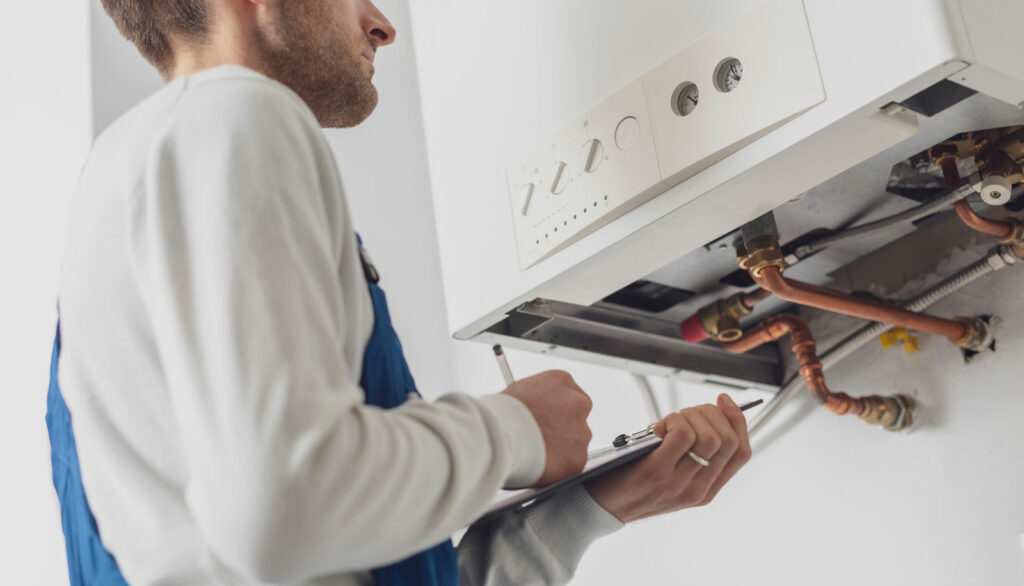
A condensate pipe is what drains all the excess water that is produced from the condensing process. Sometimes during winter months, ice can form around the pipe and eventually stop it from functioning. This causes condensate to back up into the boiler overtime, and eventually results in the boiler shutting down. If you notice ice build up, try the following before contacting a professional:
While a lot of common boiler issues can be dealt with relatively quickly and without hassle, sometimes a replacement is the only solution. You know how to troubleshoot a boiler, but you should also be aware of when it needs replacing without question. Here are some of the key signs to look out for:
Boiler cover is a type of insurance which acts as a protection if something goes wrong with your boiler, no matter what type or brand. Boiler cover can help you to cover costs of things like engineer assistance as well as any parts necessary to make the repairs. Sometimes you will get a certain amount of cover as part of the package when you buy a boiler, but it may be separate. If you’re faced with choosing your own, there are plenty of comparison sites available to help you.
Before we dive into some tips as to how to choose the best boiler cover for your needs, let’s cover a few important things to remember when choosing a boiler insurance provider.
If you have had your boiler for a while and are just now deciding to look for the best boiler cover options, you may be disappointed. A lot of companies will not provide cover to especially old boilers, as it is far more likely that they will break down and be in need of frequent, costly repairs. It might be in your best interest to look into replacing your boiler instead.
Depending on the company and the deal you choose, there will be a limit as to how much they cover. If your boiler needs a particularly expensive repair or new part, you might be faced with paying additional costs. Remember to always read the fine print and know what you’re getting into when you first purchase your cover package!
If you are becoming a new homeowner and looking into home insurance providers, you may be able to get a boiler cover add-on. While this can of course save money, it is also a great time saver, meaning you will not have to worry about too many company policies when it comes to managing your various insurances.
That’s right – this might be a guide on how to choose the best boiler cover, but you only have to make the choice if you’re sure you want to. If you have a relatively new boiler that is reliable and efficient, getting boiler cover might not be worthwhile. However, if your boiler is a few years old, or you have a new one but are planning to stay in the same property for 10+ years, boiler cover could save you from forking out for repairs when you least expect it.
A lot of people choose to invest in boiler cover for their own peace of mind, but remember you can always get affordable, speedy boiler repairs from external providers like Bbright.
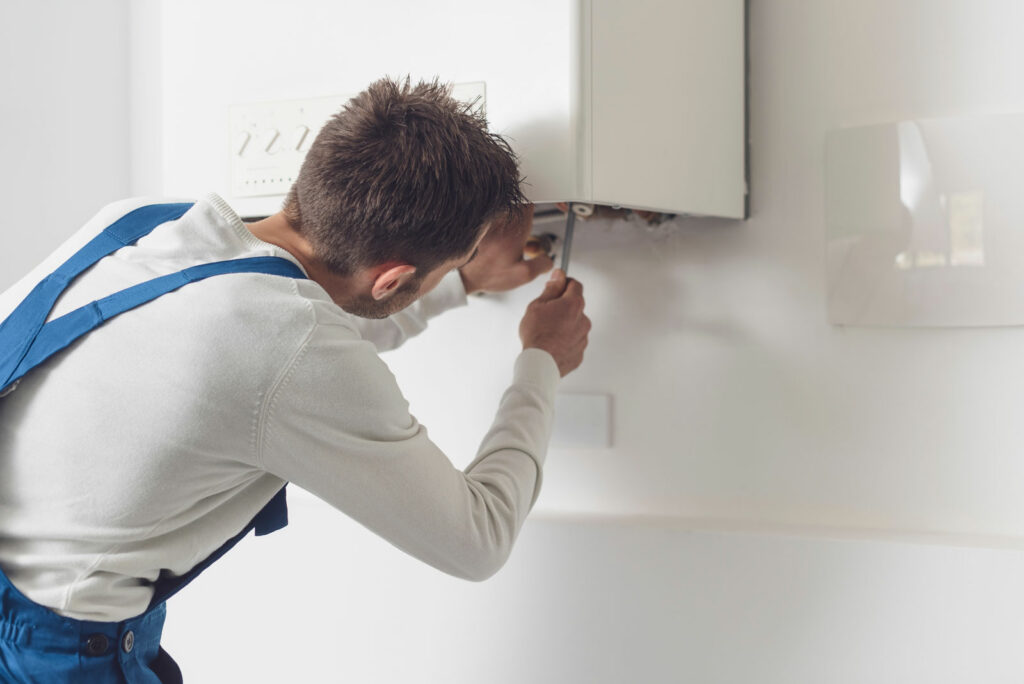
If you’re still set on choosing a boiler cover provider, we’re sharing some top tips on how to get it right and make sure it’s the best boiler cover for you.
Boiler efficiency mainly comes down to the model of your boiler – most newer units are designed to be more effective and save money in the long run. The most efficient boilers on the market generally use less energy to produce the same output, therefore costing you less. For most newer homes of small to medium size, combi boilers tend to be the most efficient option, however our boiler experts will be able to provide
As well as efficient boilers being beneficial for you in terms of finance, they are also helpful for the environment. By ensuring boiler efficiency, you are also lowering your carbon footprint as you are using less energy to heat your home.
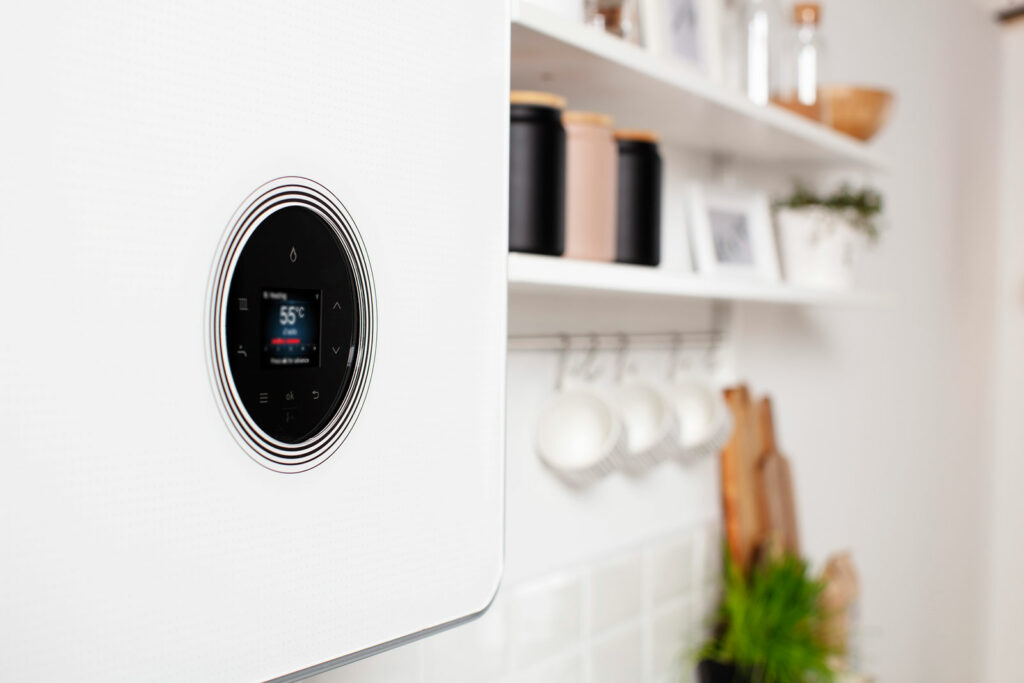
Thankfully, there are plenty of ways in which you can save money and maximise boiler efficiency without simply going without heating and hot water. As previously mentioned, most newer models are designed with efficiency in mind, but the importance of the following steps still remains – looking after your boiler from the very beginning of its life in your home will help it last longer, saving you money on repairs and replacements in the future.
1. Take care of your unit: This goes without saying, but you must keep your boiler well maintained if you want to make the most of the money you are paying for it. Keep your boiler as dust-free as possible to prevent its tubes and pipes from getting clogged up – this can be done quickly by wiping the exterior unit every once in a while. The interior of your boiler may also need cleaning occasionally, but it is important to leave this to the experts for safety purposes.
2. Get your unit serviced annually: An annual service will ensure there are no serious problems with your boiler that could cause you to be out of pocket due to regular repairs. It will also give you peace of mind to know that your unit is working to the best of its ability.
3. Look after your radiators: Try to remember to bleed your radiators regularly. This will not only improve the heat efficiency of each radiator, but also save you on heating costs as you will likely need to leave your boiler on for less time. To work out whether your radiators need bleeding, check how long they are taking to heat up. If it is longer than usual, or if there are any cold spots, it might be worth bleeding them or seeking help from a qualified engineer.
4. Ensure effective pipe insulation: Having well insulated pipes can make sure your boiler does not work too hard when it comes to spreading the heat around your home. Central heating pipes can be insulated with foam to improve overall boiler efficiency.
5. Top up your boiler pressure: You should be able to locate a pressure gauge on your unit. A significant pressure drop (to below 1.5) may be impacting your boiler efficiency, so make sure to check this frequently and top up the pressure when necessary. Please see this guide on how to repressurise your boiler yourself, or contact our engineers to help you.
6. Upgrade: If nothing seems to be helping your boiler become more efficient, perhaps it is time to consider an upgrade. Particularly if you are living in an older home, or you have a system or regular boiler that has been running for several years, a new, energy efficient combi boiler could be your money-saving solution.
Put simply, electric boilers use a heating element (similar to a kettle) to heat cold water required in the home. They are connected to the mains electricity supply, and heat cold water that comes from the mains water supply. Once water has been heated by the electric element, it passes through to your radiators or taps in an instant. Electric boilers still provide all the same benefits as traditional heating systems, just without the need for a gas supply.

Looking at the pros and cons, one would assume that yes, electric boilers are better for the environment. Since they don’t burn fossil fuels to generate heat, they do not release waste gasses and are therefore a more sustainable option. However, there are some concerns about the initial process of manufacturing the electricity to run these boilers, and suggestions that this could actually produce as much pollution as a gas boiler system.
So, while an electric boiler might be a great way to reduce your carbon footprint, there’s a chance that it won’t have any differing environmental impacts to those of a gas boiler. The best thing you can do at this stage, is to choose the option most suitable for you and your home. We recommend that you seek expert advice before deciding to replace your unit on a whim!
As previously mentioned, most new boilers are reliable and are unlikely to cause you any issues. However, it’s worth noting that all boilers (and particularly combi boilers) are rather complex appliances, and are usually running all year round. Plus, boilers may rely on external pipes or water tanks to keep them functioning properly. All of this means that while they are unlikely to cause regular problems, there are still several potential faults you could encounter throughout the year.
Boiler error codes could imply any of the following:
It is also worth noting that a lot of boiler issues will require attention from a professional gas engineer. You will likely find information in your boiler handbook regarding how easily the problem can be solved, so be sure to consult this before attempting any fixes yourself.
Unfortunately, there is no quick answer to this question. Boiler error codes will always differ depending on the specific model of the boiler, and there are different numeric combinations that imply various fault types. The best place to find the answer to your error code query is in the boiler manual that you should have received when the boiler was installed.
However, while there is no simple way to cover all possible boiler error codes, we can of course cover the most popular types of error and what you might expect to see displayed on your unit.
Some boiler models will display text instead of a code. Here are the common fault messages you may see displayed on your boiler, and what to do immediately:
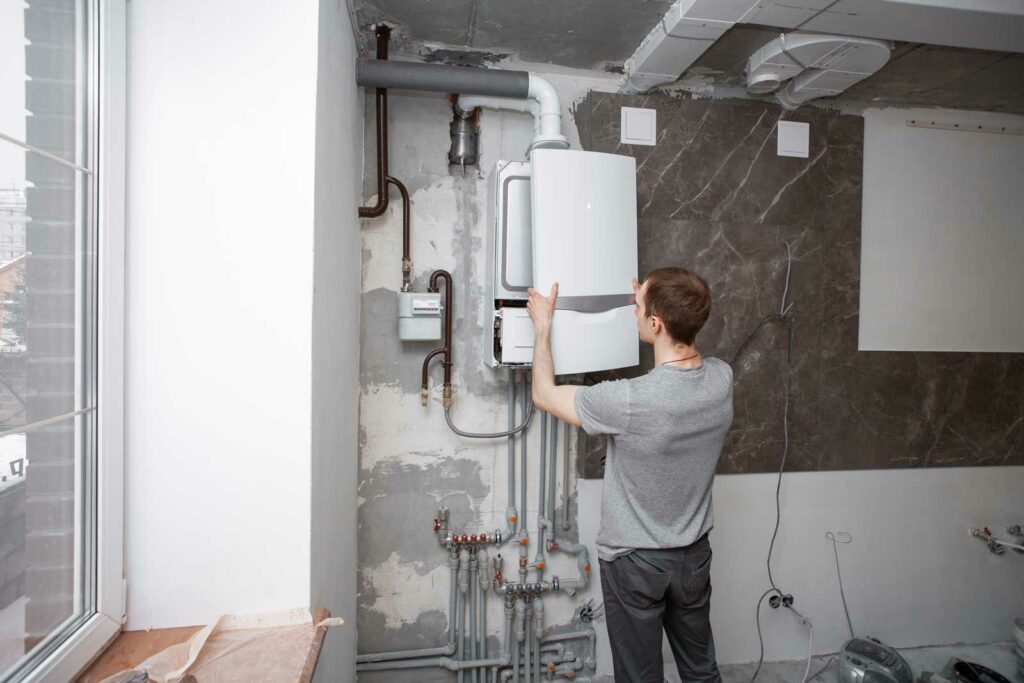
The most popular boiler models we supply at Bbright usually have their manuals available online. Here are some that may help you:
While some boiler faults may seem simple to fix at first glance, more often than not a thorough repair will require an expert’s eye. Be sure to properly consult your manual before attempting any boiler fixes yourself, as you could end up with more issues than you started with. At Bbright, we have a team of experienced and highly-qualified engineers who will be able to assist you with whatever boiler error codes you are having trouble with. Find out more about boiler repairs here.
There’s no doubt that boilers have evolved massively over the years, but nowadays there are three main types of boiler for homeowners to choose from. They each have their own benefits, and often are more suited to specific types of home.
Regular boilers are the most traditional type of boiler. You will usually find regular boilers in the attic or garage of older homes. They require tanks as well as a hot water storage cylinder, so are much bulkier. However, they are very efficient, providing daily hot water and central heating when needed.
Combination (combi) boilers are named as such because they provide hot water and central heating from one unit. The water is heated instantly, which means they are not only efficient, but cost effective.
System boilers are usually pricier than regular or combi boilers, but this price comes with increased reliability. System boilers tend to work better for larger homes as they require a hot water tank.
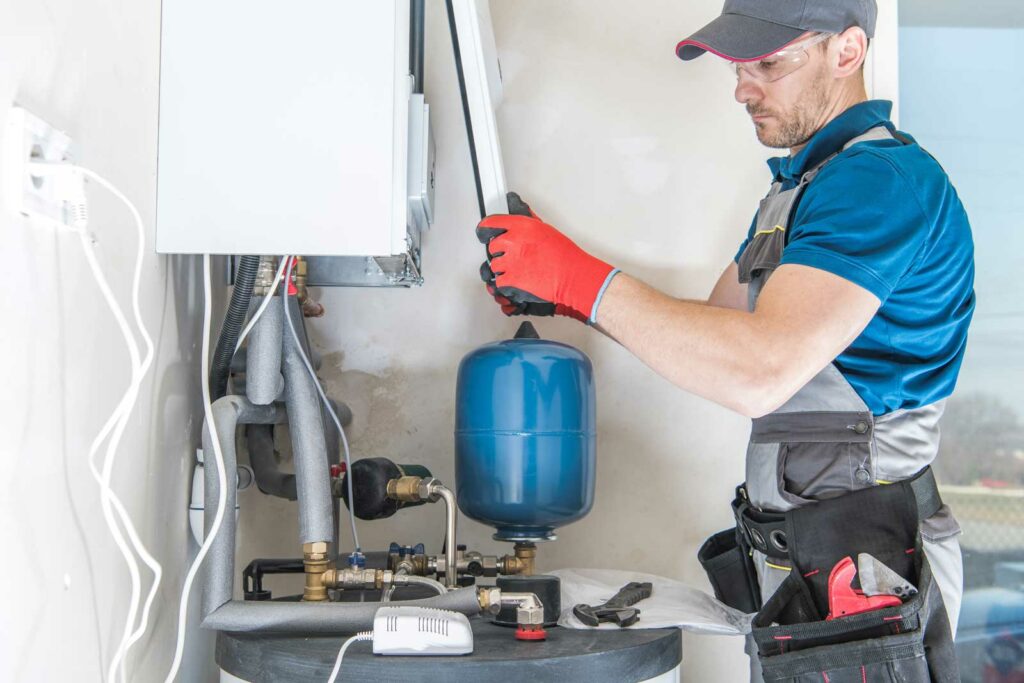
Deciding on the ideal boiler you need for your home is far more straightforward when you can narrow down your options. We’ve already looked at how the home you have might affect your choice, but in this section we will delve deeper into the specifics. To help you condense your options, here are some of the key things you can consider when deciding which boiler is right for you.
You will find that most boilers have a 5+ year warranty. This might seem perfect for new homeowners who will likely move to a new property relatively quickly, but for those choosing to settle down in a home for 10+ years, searching for a boiler with a longer warranty is probably a better option. While this may come at an increased cost, it will certainly make savings for you in the long run and you will spend less on repairs and replacements.
Boiler sizes can vary quite significantly, especially if you compare specific types. For example, a regular boiler will take up far more room than a combi boiler due to it requiring an additional tank or storage cylinder. If you’re starting out in a small home, you will likely need the smallest combi boiler on the market – ideally small enough to be concealed in a kitchen cupboard. If you’re in a larger home, you might not be so concerned with concealing the unit, but there may still be restrictions in terms of where in your property the unit can go, especially if you will require a tank.
Once you have considered boiler type, size and warranty, you may be interested to assess some of the boiler’s additional features and functionalities. For example, is the unit simple to operate? Is the unit particularly quiet? Does it have a digital display? Is it scratch resistant? Specific information and special features for each boiler will be available on our website.
Price is no doubt a considerable factor when you’re asking yourself what boiler you need. Boiler costs can of course vary, but these variations are typically based on efficiency and any additional functionalities. It is usually recommended that you make initial decisions in terms of size and features before then comparing prices once your choices have been narrowed down. Try getting a quote with us and go through the personalised recommendation system.
If after following this guide you’ve been able to decide which boiler you need to best suit your requirements, it’s time to think about how to get the most out of it and avoid paying for recurring repairs. Below are some of our top tips:
We hope you enjoyed our guide on how to find your perfect boiler. If you need any additional assistance from us, we’re always happy to help.
Overtime, sludge (mineral and oil deposits) can build up inside your boiler unit, causing it to become less efficient as it has to work a lot harder to heat the water passing through. By draining your boiler of this sludge, you can minimise this build up and keep your unit running cost-effectively. Plus, draining your boiler regularly should extend its lifespan and will mean you can postpone having to pay for repairs and replacements.
You may also need to drain your boiler if you are redecorating or removing your radiators from walls for another purpose such as changing your pipework. It can also be helpful to drain your boiler if you are going on a long-haul winter holiday – this is to reduce the risk of pipes freezing over.
How do you know whether or not sludge is building up in your boiler unit? This is easy: simply release the air from one of your radiators and check the colour of the water. If the water is clear, there is no sludge, but if it is dark in colour it is recommended that you drain your boiler.
Draining your boiler is a simple process, and all you will need is a few hours and a hose. Here are 5 quick steps to follow for a drained and more efficient boiler:
To drain your boiler safely, you will first need to unplug it from the mains and wait for the water inside the boiler to cool down. This is to make sure that there is no risk of scalding when water is being drained out. We recommend waiting at least 3 hours following the boiler being unplugged. You will also need to turn off the water intake valve – this will make sure no water enters the unit while you’re emptying it.
Once your boiler is prepared and the water has cooled, you will need to find the drainage valve which is where you will let the water out. Usually, the drainage valve will be on the radiator that is positioned lowest in your home. The valve will likely be in the bottom corner of the radiator. Once you have located the valve, you will need to secure your hose onto it and ensure the other end of your hose is somewhere outside the home so that the water can be moved safely.
Once your hose is tightly secured and in place, you can open the valve on the radiator and let the water drain out. You will need to leave the hose in place until there is no more water to drain. Once empty, you can close the valve and remove the hose.
The next step is to locate and open the braided filling loop which should be positioned underneath your boiler unit. The filling loop is a braided hose with fittings on each end; one connecting to the unit, the other connecting to the mains. To re-pressurise the boiler, all you will need to do is leave this open until the pressure dial reads 1. You can then put the filling loop back in place.
Finally, you can make any final checks around your boiler unit and radiators – if there are no leaks, you have successfully drained your Worcester Bosch Combi Boiler!

Deciding whether to turn off your boiler in the summer, or leave it running without using the heating, will depend largely on your lifestyle – but also the type of boiler you have. While the summer is strictly speaking the best time of year to have your boiler switched off, sometimes if they are off for too long, it can lead to issues. Below are some of the things you should consider:
Older boilers, usually non-condensing boilers, have pilot lights (small blue flames), which you are able to see through a small window in the boiler. When a pilot light is on, it means it is burning gas for your boiler. As long as the boiler is on, the flame is lit. In these cases, it’s a good idea to completely turn off your boiler in the summer months – otherwise you are continuously paying for the gas that is being used. An even more useful suggestion is to replace this old style boiler with a system or combination boiler. Learn more about different boiler types here
If you already have a combination (combi) boiler, you will know that this supplies both your heating and your hot water. Therefore, switching these off during the summer months will leave you with cold showers (unless you have an electric one) and cold tap water. This might not be a problem for you if you are travelling abroad for most of the summer months, but if you still need occasional hot water bursts, it’s best to leave your all-in-one heating system running throughout the year.
As mentioned above, travelling might impact your decision as to whether to turn off your boiler in summer. More often than not, it is a good idea to switch it off if you’re away during summer, especially if it’s for an extended period. However, if you travel during the winter, you should be more cautious about switching off the boiler. During colder months, pipes can freeze if they are not being heated due to the boiler being active. The last thing you will want to return home to is the need for a boiler replacement or repair… but at least you’ll be able to get it fixed fast!
Appliances such as dishwashers and washing machines use hot water, and it’s a common concern that these appliances will not function properly if the boiler is switched off. Make sure your appliances are ‘cold-fill’ (or ‘hot and cold-fill’), and you will not have any issues. Most modern appliances have this feature. Cold-fill means that the appliance uses electricity to heat any cold water that it needs to function, and will not need to use hot water from your boiler.
Now that you know some of the key considerations when deciding whether to turn off your boiler in summer, it’s important to know how to properly look after your boiler, even if it is switched off.
If you’re planning on keeping your boiler switched off for several months at a time, be careful not to forget about it altogether. The valves or the pump could seize if they are left inactive for too long, so make sure you switch your boiler back on for a few minutes every now and again to keep things ticking along.
Even during winter when your boiler is most likely on, it’s important to get regular boiler services to check all of the parts are working properly and that your boiler is efficient. If your boiler is left for too long without a service, you could be faced with hefty fees for repairs or even replacements when you least expect it.
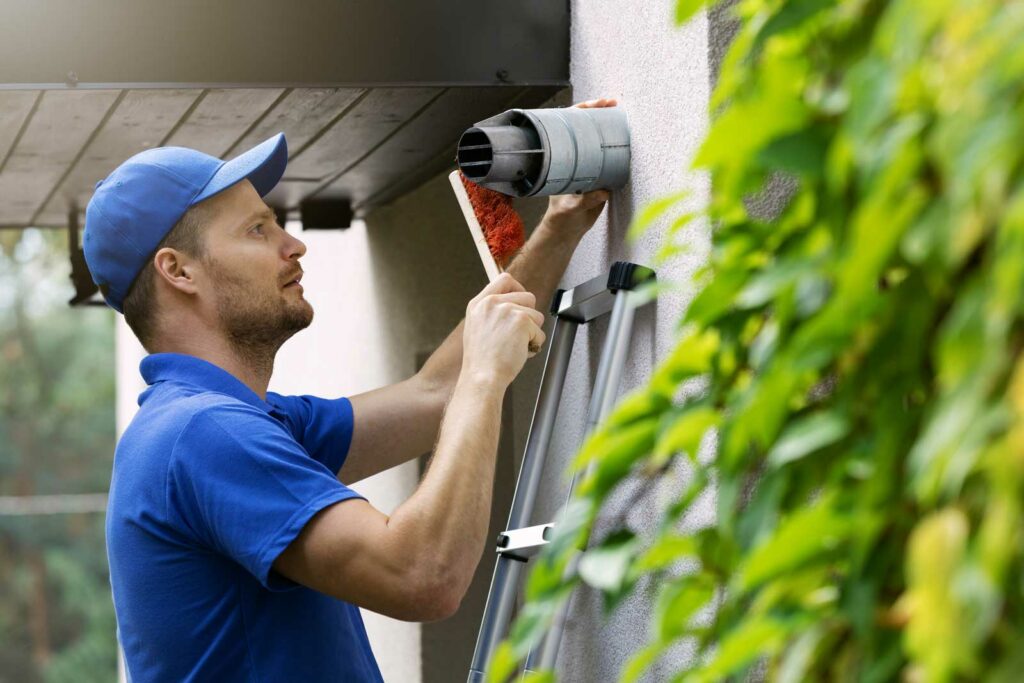
If you live in an older property, or you have already had your boiler for 10+ years, it might be time to look into getting a replacement. Doing this during the summer will be far more convenient for you, as you won’t be left without heating in the colder months. Plus, having a brand new boiler will mean efficiency will go up, and costs will go down, even when you are using the boiler more often in winter.
Summer boiler maintenance is simple once you know what to look out for, and have ensured you are organised with regular services. Assess your boiler during it’s downtime over warmer months, and prepare for the potential need for repair or replacement if it is not performing efficiently.
Bbright’s energy experts know exactly what it takes to efficiently heat a home without ramping up the bills. Take our winter home energy saving tips on board from today, and you could see significant change in the coming months.
If you don’t already have a smart meter, you’re likely missing out on savings. A smart meter provides a constant overview of how much energy you are using in your household, and how much it is costing you. Having this view will likely prompt you to use your heating system for less time, on top of making small habitual changes elsewhere in the home, for example being mindful of switching off appliances and lights
An inefficient boiler is one of the key culprits of high energy bills. If you haven’t had a new boiler for several years, or feel like you are constantly having to repair your current model, the likelihood is that you are due an upgrade. For most homes, we recommend switching to combination boilers for optimum efficiency, but we can conduct an online assessment that will recommend specific models for you, taking into account your circumstances.
Believe it or not, windows are a great tool for keeping your home at optimum temperature. During the day, keeping curtains and blinds open to let sunlight in can make quite a difference to your home temperature, and at night, making sure they are closed can help to keep the heat inside. Of course, ensuring you have double glazing is vital when it comes to keeping draughts at bay.
Since the days get much shorter during the winter, the need for lighting dramatically increases. Storms, snow and clouds can even cause us to resort to lighting our homes in the daytime. Switching out bulbs for LED lights is a surefire way to keep costs down, even if it seems like a small change. It’s worth remembering that home energy saving can start with seemingly insignificant switches like this – eventually, if habits are maintained, it will make an impact!

Whether you have a small one-bedroom flat or a large family home, there’s rarely a need to heat every room at once. Using space heaters can limit the amount of time you are using your full heating system, giving you just enough heat to be comfortable in a couple of key areas. This is especially relevant for those who live alone or those who work from home. Alternatively, you could try switching off radiators in rooms that are used less frequently.
Winter home energy saving doesn’t have to involve making new purchases. If you’re serious about keeping bills low, try to find other means for keeping warm. This could be as simple as layering up – wearing an extra jumper during the day or adding a couple of blankets to your bed at night. If you have a wood-burning fireplace, put it to good use throughout the day. You could even start leaving the oven door open after use to make the most of its residual heat! Again, while these changes may seem small, together they can seriously reduce your energy costs.
Hopefully these winter home energy saving tips have given you some inspiration as to how you can manage your bills during the colder months. Little changes certainly go a long way in the world of energy!
Home heating can be one of the most significant costs homeowners face, so anything that can be done to reduce them will eventually have a fair impact on the overall bill.
It sounds obvious, but switching your energy supplier might be the first step towards reducing home heating costs. There are plenty of useful comparison sites you can use online to assess whether you are paying too much for the amount of energy you are using. More often than not, you’ll find there are cheaper options available – and it doesn’t take too long to make the switch.
Having a smart metre installed in your home is a great way to keep track of the energy you’re using – and can be especially useful during the winter months when you are using more heating. Smart meters give you visibility of what your bill looks like each month and where you could be making savings. Most models will allow you to see energy use per day, month and even year. You will likely be able to get a smart meter installed for free.
If you don’t have effective home insulation or you are noticing strong draughts coming through doors and windows, the likelihood is that you are using more energy than you should require to heat your home. Proper insulation will allow your home to stay warmer for longer, meaning you can reduce home heating costs by keeping your boiler running for less time. Insulating both your loft and cavity walls may seem like a large upfront cost, but if you can save on home heating costs year after year, it’s most definitely worth it. Alternatively, you can buy draught excluders for your doors and windows (and even your fireplace) and assess whether this makes any significant difference before you invest in proper insulation.
This goes without saying, but a more efficient boiler can work wonders when it comes to reducing home heating costs. If your boiler is old or has been needing regular new parts or repairs, it’s definitely time to look into getting a new one, and there are hundreds of energy-efficient models on the market. Get a quick quote now with Bbright to find the most suitable one for your home.
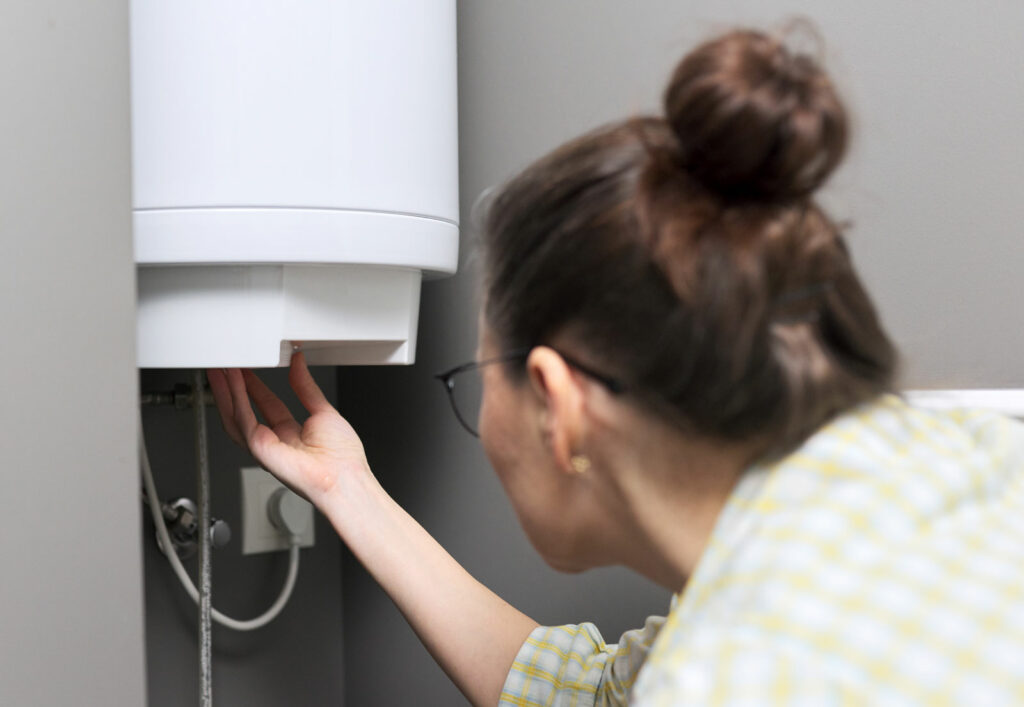
Most homes will have radiators in almost every room, but the likelihood is that when you turn on your heating, you don’t want to heat some of the rooms that are used less frequently, like small bathrooms or spare bedrooms. Monitor your radiators when you first switch on your heating, and ensure that those you don’t need are not switched on full – or even on at all. Heating fewer rooms will certainly help to reduce overall home heating costs.
Here’s a bonus tip from our energy experts: invest in more efficient appliances! Of course, it’s not the money-saving way to suddenly buy brand new appliances, but if you’re already thinking about replacing something in your home, it’s in your best interest to look for the most energy efficient model on the market. It may not seem like much, but making sure you invest in energy efficient appliances such as dishwashers and washing machines can have a huge impact on your overall energy and heating bill.
Take these tips on board and hopefully you will see a noticeable reduction in your home heating costs this year. Being aware of your energy usage doesn’t have to mean sacrificing a warm home or hot shower – it is simply about making small steps to ensure greater efficiency in the long run.